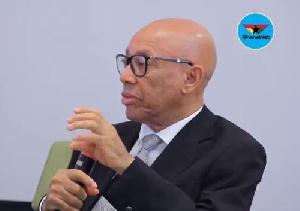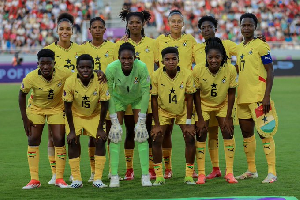Former head of the Commission on Human Rights and Administrative Justice (CHRAJ), Emile Short, has stated that investigative journalism plays an important role in fighting corruption.
He made these observations during a panel discussion on investigative journalism organized in memory of Komla Dumor by the Komla Dumor Memorial Foundation in partnership with the World Bank.
According to him, Ghana lacks enough investigative journalists in the fight against corruption. He further revealed that the National Corruption Plan will focus on training more investigative journalists.
Quizzed about what makes a good journalism, he said objectivity is key and the media must familiarize themselves with the laws of defamation. He further stated that the fact that one has a license does not give one the right to write defamatory pieces about people.
According to Emile Short, Ghana lacks enough investigative journalists in the fight against corruption, hence the introduction of the National Corruption Plan to help train more investigative journalists.
Quizzed about what makes a good journalist, he said objectivity is key and the media practitioners must familiarize themselves with the laws of defamation.
The anti-corruption campaigner further stated that the fact that one has a license does not give one the right to write defamatory pieces about people.
He said, he has a preferred group of radio stations he believes to be credible and process objective and unbiased news.
He observed that the fact that some media houses are owned by political figures affects the reportage and therefore, urged journalists to report the truth and focus on facts.
He advised responsible media houses to “be mindful of the limitations and restrictions on freedom of expression“.
Meanwhile Elizabeth Ohene, objected to the notion that quality journalism has nothing to do with neutrality but objectivity “either you are a good journalist or not.”
She argued that one's party affiliation does not have to affect what one writes, adding that the important thing that has to be focused on is good training to enable the production of great journalists.
Reacting to the importance of journalism on good governance, Senior Research Fellow at the Institute of Democratic Governance (IDEG), Professor Atsu Ayee remarked that, in order for the country to engage in good governance, there is the need to pass the Right to Information bill.
Adding his voice to the panel on the discussion, Board Chairman of the National Communications Authority (NCA), Kwaku Sakyi-Addo reiterated the need for professionalism in journalism delivery.
He opined that citizen journalism does not reduce quality journalism, rather, it enables it to stand tall.
General News of Thursday, 22 February 2018
Source: www.ghanaweb.com













